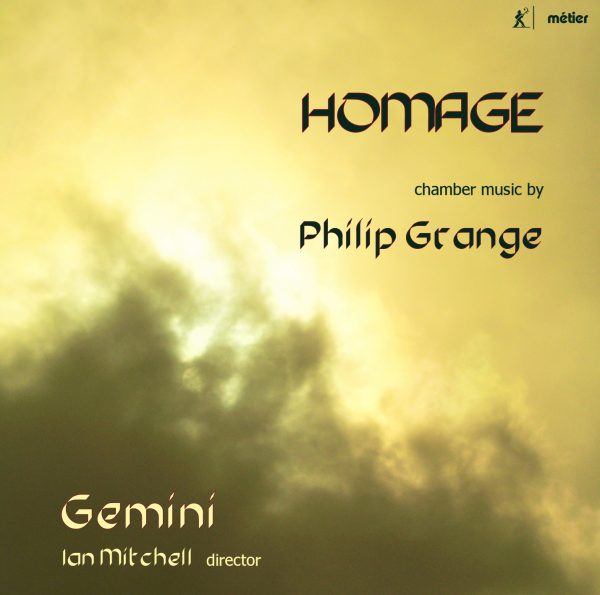The Chronicle Review Corner
This work from Philip Grange is at some other end of a spectrum [from being aimed at mass appeal]. It’s far from difficult but it’s also not a lightweight piece you can instantly relax into. Grange is an academic and professor of music at Manchester University and there is a suitably academic, technical feel to this.
Tiers of Time opens with edgy violins and piano, the piano soon moving down to the bass and creating a feeling of foreboding. The homage of the title refers to the fact that the works are homages to other composers and authors, and Tiers was written in 2007 for a concert given to mark the retirement from Manchester of a friend and colleague, composer John Casken.
It was inspired by the landscape of the Peak District – not the swooping beauty on a summer’s date but the gloomy moorlands (though he does concede “and the breathtaking vistas often illuminated by powerful sunlight” in the sleeve notes. There is a stark beauty to the piece.
Elegy for solo cello is more soothing, and was written following a visit to the grave of the poet Edward Thomas, killed at Arras in 1917; inspired by a grave and thinking of the senseless loss of life, this is a thoughtful piece, with some moments of beauty thanks to the cello. In fact, fans of mournful cello music will probably find this programme easiest to access.
Piano Trio: Homage to Chagall makes its homage obvious; the sleeve notes explain it fully, but it’s a bustling, edgy piece. The final work is Shifting Thresholds, inspired by Samuel Beckett. A bit like Beckett, it’s a bit mysterious and constantly shifting. It was more directly inspired by a novel of Beckett, Malone Dies, about someone on the verge of dying who invents stories to keep himself entertained; waiting for God, so to speak.
It’s an album that seeks to create a mood rather than offering melody, and although it does stand repeated plays it is perhaps one to match the mood of the listener.
Gemini is a leading British chamber ensemble and its association with Grange goes back to the mid-1990s.
@divineartrecordingsgroup
A First Inversion Company
Registered Office:
176-178 Pontefract Road, Cudworth, Barnsley S72 8BE
+44 1226 596703
Fort Worth, TX 76110
+1.682.233.4978
We noticed you're visiting from France. We've updated our prices to Euro for your shopping convenience. Use Pound sterling instead. Dismiss












